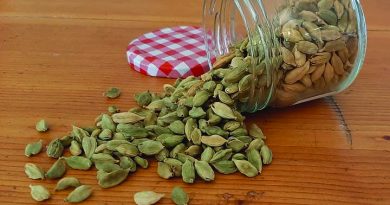You Are What You Absorb
By Christal Blanchard, ND
Whether you are an athlete, an exercise enthusiast, a weekend warrior or just someone who wants to stay active and maintain muscle mass, you should be aware of supporting your adrenals. In the spring issue, we discussed the importance of the adrenals and how athletes and those alike may benefit from adaptogenic herbs such as Rhodiola to improve performance. In this article I will be sharing some of my favourite dietary tips and supplements to help you achieve both your athletic and personal goals.
Diet
It is true: “You are what you eat.” What I often prefer to say, however, is: “You are what you absorb.” When it comes to sports, you have to remember that when you sit down to eat, this is the time that you are fueling your body with the energy it requires to perform. You need to eat something that gives you energy rather than something that takes more energy to digest it.
So what should you eat? For the most part, it is quite simple. Avoid anything processed. If it comes in a box and/or has ingredient names that you can’t pronounce, the body will have trouble digesting it, thus taking up energy to extract the nutrients from it. Secondly, you need protein and lots of it.
Not only does protein help with building muscle it also helps with transporting hormones throughout your body. For example, take someone who has normal levels of thyroid hormone according to their lab work. The levels may be normal, but they are still experiencing symptoms of a slow-functioning thyroid gland such as hair loss, weight gain, fatigue, etc.
Although the labs levels are in fact “normal,” it is possible that the thyroid hormones are not being delivered to the tissues to help hair grow, to help break down fat cells and to give your muscles energy. So make sure you are eating plenty of protein from lean meats, eggs, nuts and legumes like chickpeas.
Tip for athletes: Consume and combine protein with a simple carbohydrate 30 to 60 minutes after a work out. This will spike your insulin, which is well-known to help improve protein absorption into muscle. Healthy examples of simple carbohydrates include fresh/dried fruit, sweet potatoes, 100 per cent chocolate, honey.
Eat healthy fats. They are the building blocks for hormones and very important for achieving optimal performance. Fat is also more slowly digested than other foods thus keeping your blood sugar balanced and preventing you from craving quicker energy sources like sugar. or processed snack foods. Healthy fats like fish and grass-fed beef are rich in omega 3 which helps decrease inflammation and brain health.
Something to consider: Find out whether you have food intolerances either through a blood test or dietary trial and error. This is beneficial in order to find out whether the foods you eat on a regular basis are actually giving you energy or costing you energy. Food intolerances also cause stress and inflammation in the body thus preventing absorption of their nutrients.
Supplements
Let’s face it, athletes demand a lot from their body and sometimes the best of diets don’t seem to cut it. Here are some of my go-to supplements that can help replace some of the most common deficiencies in many athletes.
Protein powder: This is the most important supplement in my opinion due to the fact that a lot of athletes struggle with getting enough protein into their diets from food sources.
Look for 100 per cent pure whey protein isolate (a milk derivative that is lactose free) or vegan protein powders from rice or peas if you find yourself intolerant to milk. Consuming between 0.6 to 1.5 grams of total protein per pound of body weight per day is a good rule of thumb to follow.
L-Glutamine: This is a major amino acid that accelerates muscle recovery and reduces that ‘achy’ feeling in between workouts. Interestingly, this is also applicable for sore muscles during colds and the flu since it is the primary amino acid that is depleted during lowered immunity.
Creatine: I’m a big fan of creatine, but it has to be for the right sport and for the right person. I have seen tremendous improvements in muscle mass, athletic performance and energy gains since creatine helps in the production of ATP (a major energy source for muscles).
Vitamin B12: This is a water-soluble vitamin responsible for normal nerve cell activity and DNA replication. It gets depleted quickly with physical activity and a deficiency can cause fatigue, poor focus and concentration, anxiety and sleep issues to name a few.
It is best found in the methylcobalamine form and best absorbed either through intra-muscular injections or sublingual tablets.
Magnesium: This is considered to be one of the most important minerals in the body as it participates in over 200 functions. Research shows that most of us are deficient.
It is especially important for the athlete for its involvement in cellular energy production, improving oxygen uptake and cardiac output, assisting in proper contraction and relaxation of muscles, just to name a few. Do you crave chocolate? If so, you may be lacking this important mineral.
Christal Blanchard is a Naturopathic Doctor at Bayview Natural Health Clinic in Toronto and Universal Medical Centre in Sudbury. www.DrChristalND.com




